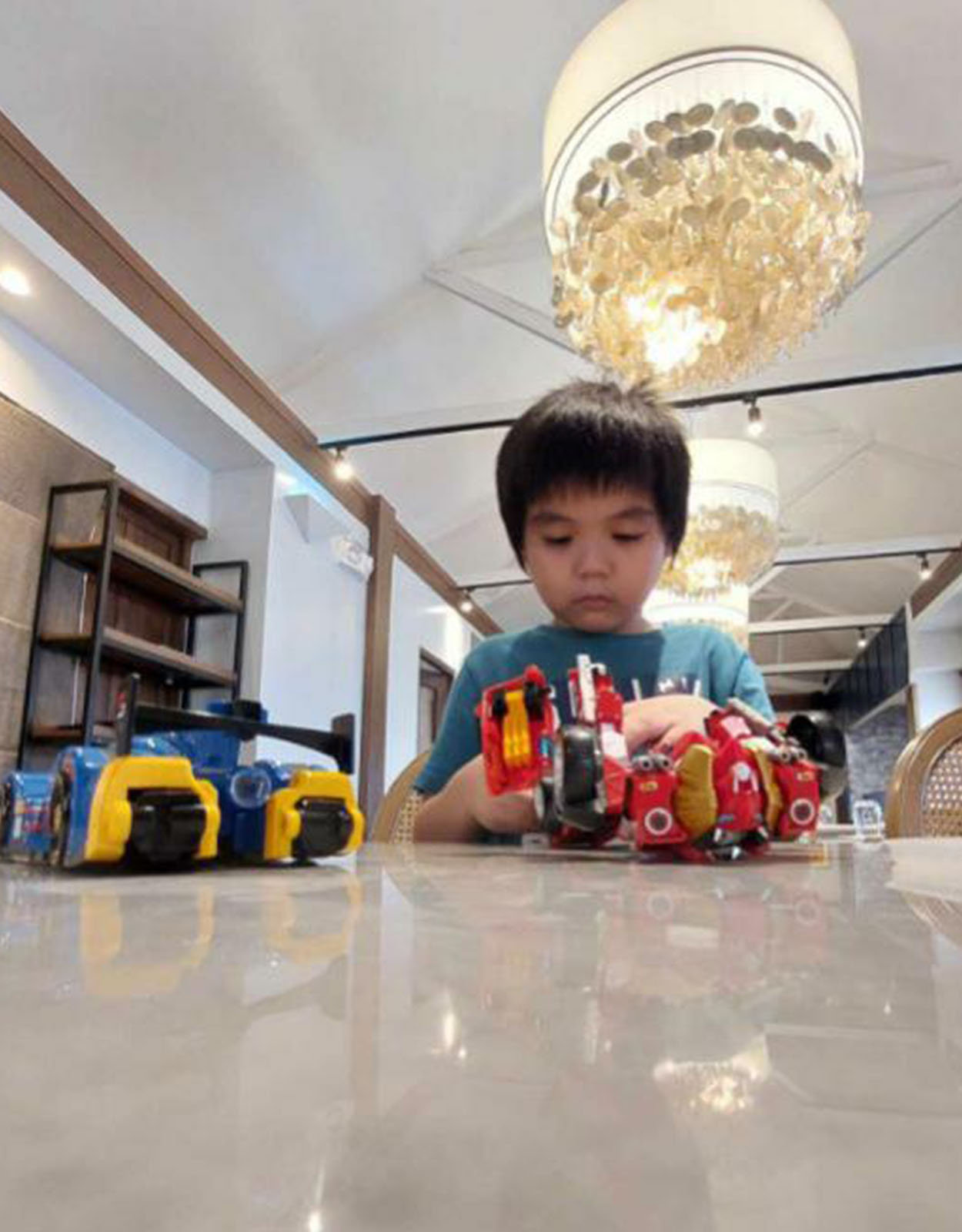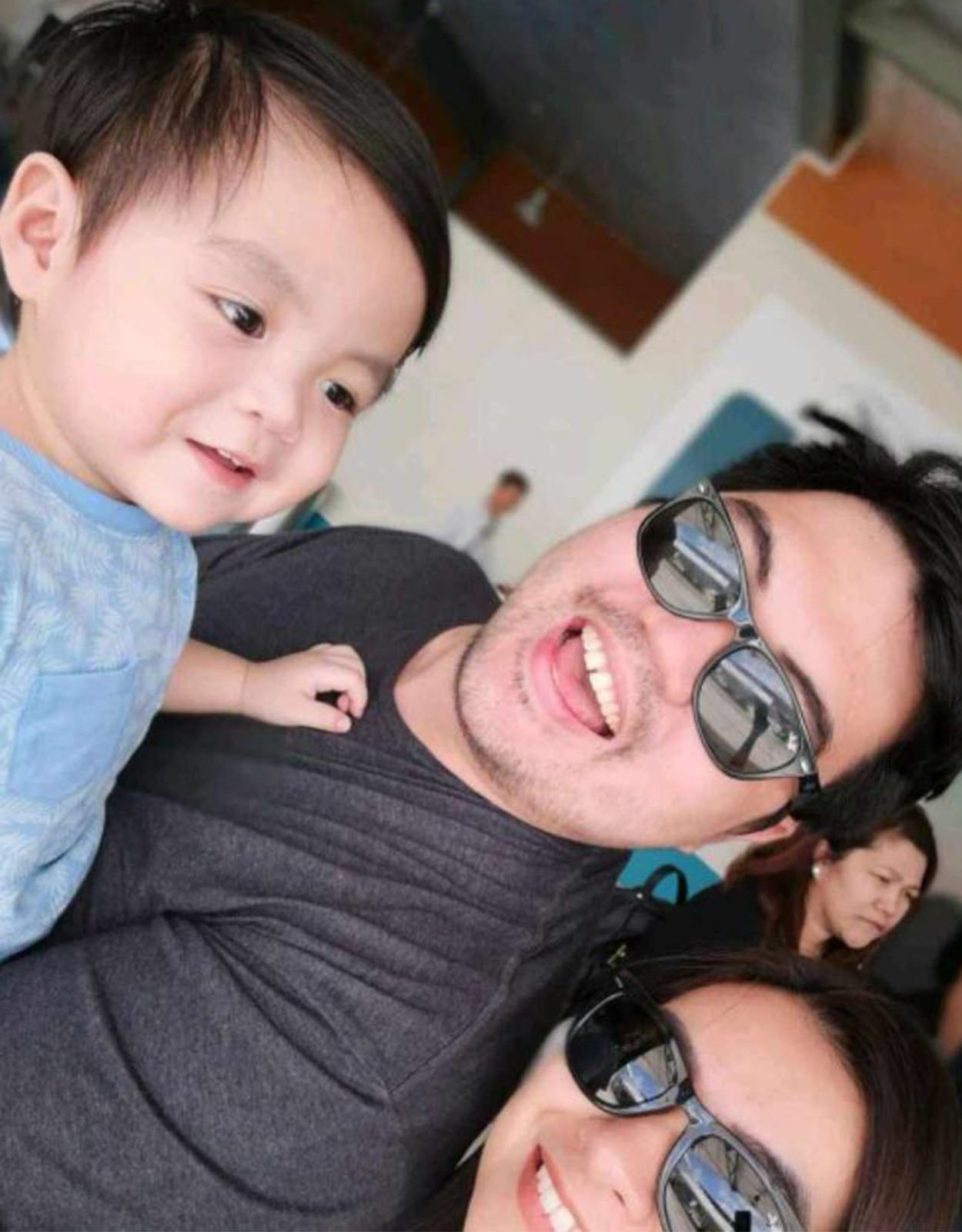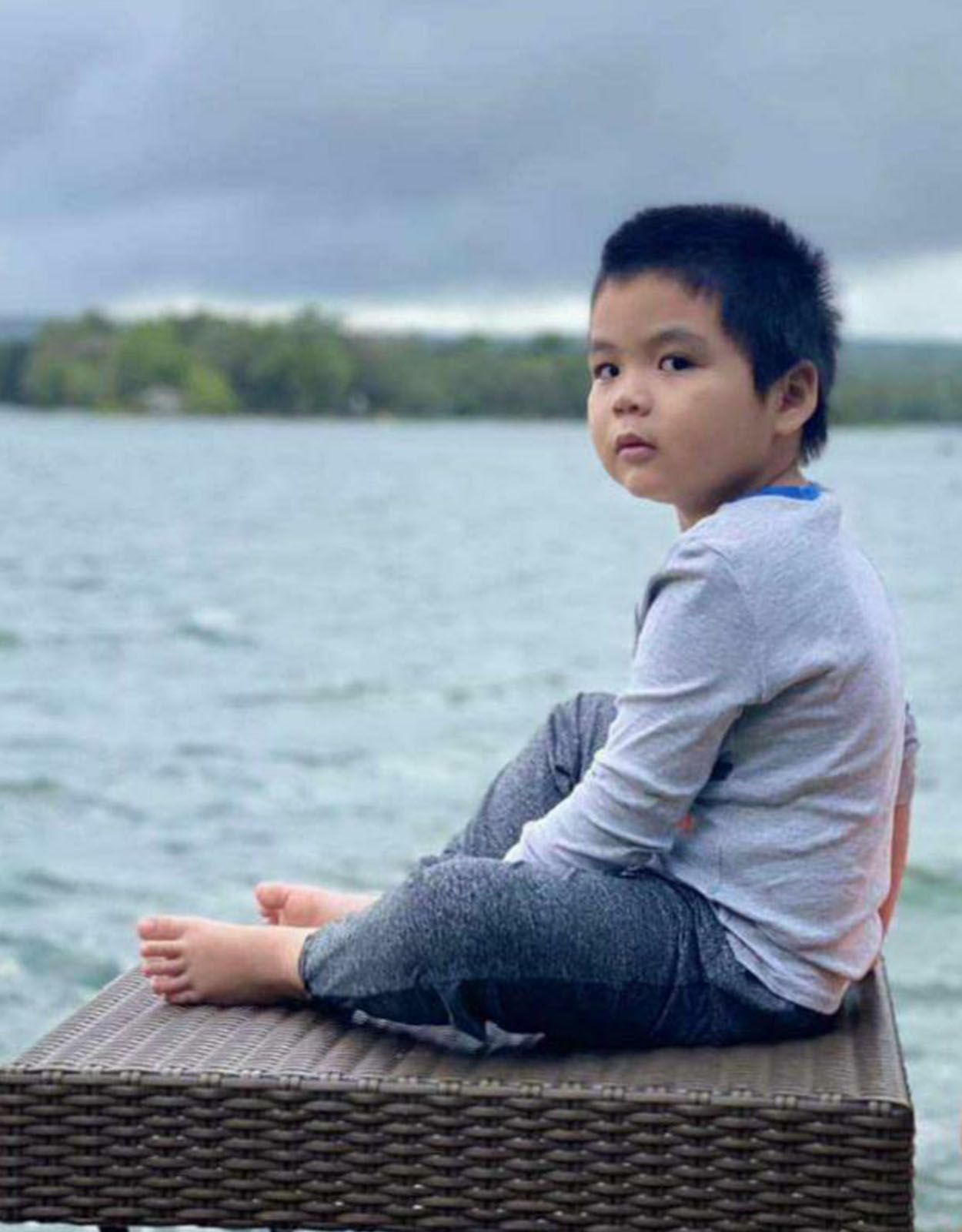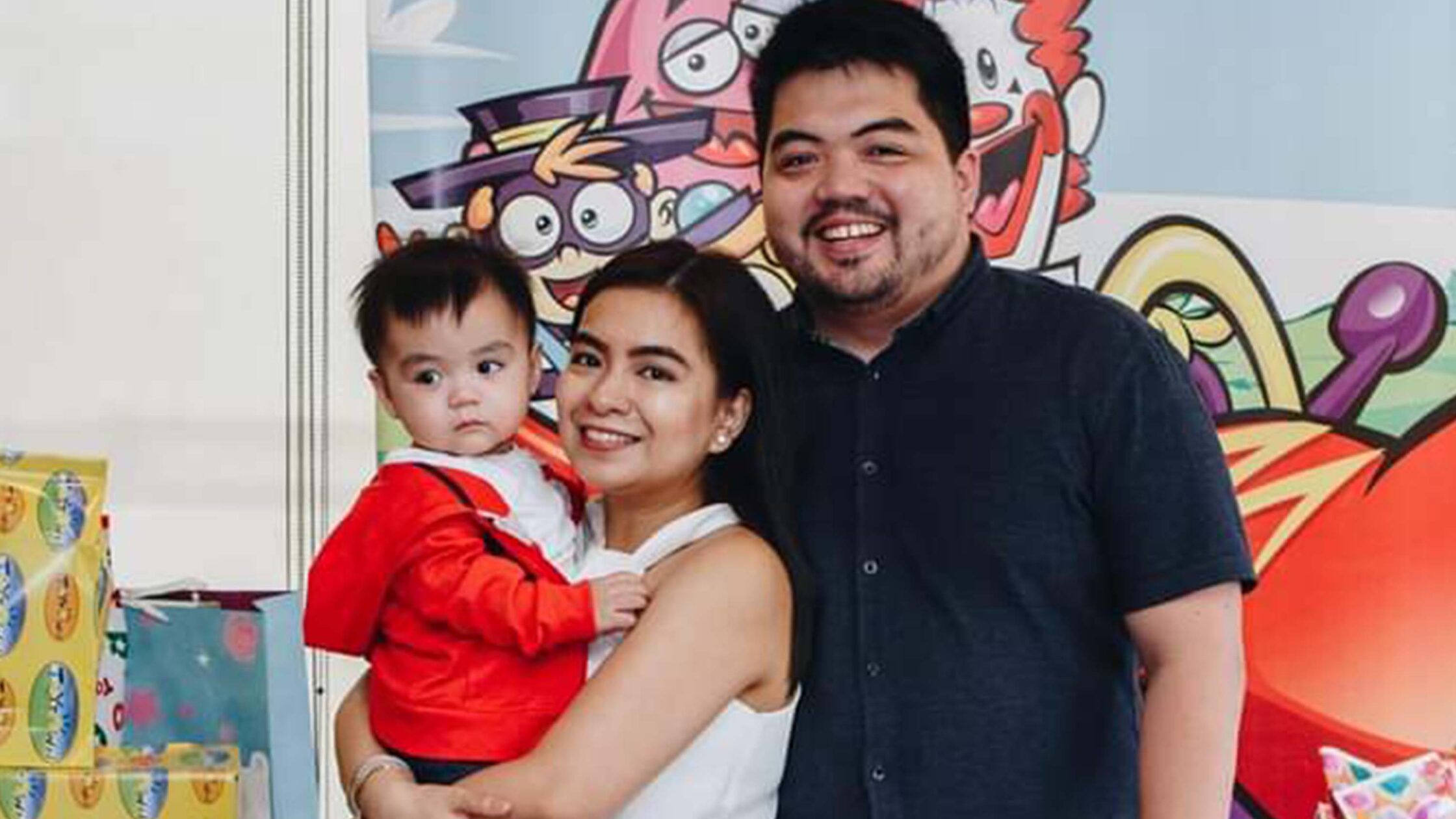Real Talk
Vincent Rocha: Cherishing Conversations and Connections
As he watches his son, Noah, learn how to communicate with the world, Mylo Speech Buddy’s CEO Vincent Rocha treasures each conversation he has with him.
“Communication is something we often take for granted,” Mylo Speech Buddy’s CEO Vincent Rocha begins. “When we go to school [and] when we eat out…the little conversations we [neurotypicals] have come so naturally.”
But that realization is something he found through his 2-year-old son, Noah, who was diagnosed with autism. Conversations, Vincent stresses, are what people use to accomplish things and get around. “It’s like living in China and not speaking Mandarin at all,” he shares a story of a friend of his who was a CEO. “We can’t communicate if we’re hungry or we need something so we’d have our own meltdown too, right? But after a week, a month, and at least a year—we can speak the language.”
He then adds a perspective, “That’s something kids with autism experience every day. They can’t tell their parents I love you. For the next 6 years, these kids can’t speak!”

Acknowledging and accepting autism
Although nobody knows the 100% conclusive cause of autism, Vincent was determined to find out. Despite the various studies that he combed through to understand his son’s diagnosis, many of them didn’t offer the answers he needed.
“When I first told my son’s doctor about an article I found that said lack of oxygen to the brain caused autism, she told me, ‘Vince, that’s not right. There’s no scientific basis.'”
With not many verified details in sight, he was left with only two things: shock and blame. Blaming his genes, himself, his wife, Nikki, and everyone. Accusations flew back and forth in his mind when he first heard the news. “It was challenging to accept [the news]. I walked out of my son’s pediatrician’s office, sat in my car, and cried hard,” he admits. “I didn’t realize until later that my son and my wife were still in the office.”
But Vincent’s challenges didn’t stop there. The search for experts and being able to afford said experts opened his eyes to how the world was far from being inclusive. “They weren’t hiding; they’re just not that many here in the Philippines—let alone [in] Metro Manila,” he laments. “If my wife and I were having a hard time, what more other Filipinos?”
Seeing the world through his son’s eyes
But their struggles were only short-lived as Vincent discovered how to see the world through his son’s eyes.
For one thing, the way Noah played with his toys in the beginning appeared strange to him, which led Vincent to scold his son. “It’s not how we [neurotypicals] would play. He was holding his toy car and looking so closely at the wheel like this,” Vincent demonstrates with a remote controller in hand. “I remember scolding him, ‘Anak, that’s not how you play with the toy.'”
But after taking a picture of the car in macro, he realized what his son was looking at—the grooves in the wheels. “When I showed it [the image to him], he smiled! It made me see that the creases in the tire when zoomed in, were pretty to look at.”
Being a neurotypical makes it hard to understand at first—especially when Noah would find joy in lining up his toys. Those moments that made him feel like a “bad father,” which he admitted in his interview.
“I was getting mad at him for the way he was playing,” he explains. “Turns out, like all kids, he was just playing the way he wanted to. That’s one thing we [Nikki and I] learned to accept.”

Giving his son a voice
While Noah introduces to him a new way of seeing the world, Vincent Rocha shows how he can interact with the world around him. Slowing down his own speech, and breaking concepts into little digestible pieces were some of the speech therapy tricks we learned in his early years.
The founder of Mylo Speech Buddy remarks, “We also followed everything his doctors and therapists said to the dot.”
No tablet until 2, don’t use ABA (Applied Behavior Analysis), and use ABA. Those were some of the recommendations Vincent remembers hearing. While those helped manage the problem, Vincent recalls exploring other solutions for his son. It was only when he came across another app, Gemini—which eventually became Mylo Speech Buddy’s competitor from the United States—that he realized Filipinos needed something like that too.
“We saw how modeling worked well with Noah. So why not make it [Gemini] Filipino?” He shares.
Thus, Mylo Speech Buddy was born. Noah excitedly fills their house with words and phrases, with fewer meltdowns too! “He still whines and throws a bit of a tantrum like any other kid. But never a full meltdown,” Vince sheepishly reveals.
“[But] when you think about it, a lot of kids with autism have meltdowns because they don’t know how to tell us [neurotypicals] what they’re feeling,” he goes on to add. “We have to show them how to use those words.”
And while many parents dream for their children to be rich, to succeed, Vincent’s dream is to exchange stories with his son. “He’s using phrases and words for now and it’s wonderful. Imagining him exchanging stories with us—that’s something that would make Nikki and I so happy.”

Finding another way to show his love to his son
As he continues to build Mylo Speech Buddy to use the same amount of bandwidth as the popular social media app TikTok, Vincent Rocha hopes that the tool will reach parents in far-flung provinces to aid them in any way it can.
“But Mylo Speech Buddy is not a magic bullet,” he quickly clarifies and reiterates throughout the interview. “Early intervention is a must. Also, having a speech pathologist and therapist helps greatly! Mylo Speech Buddy’s there to make sure parents can follow the speech therapist’s plan at home.”
While he dedicates his work on Mylo Speech Buddy to Noah, Vincent now no longer sees his son’s diagnosis as a “death sentence.”
“As parents, we often see it that way because it’s shocking and it challenges what we know about parenting. But after seeing the world through his eyes and helping Noah find his words, I’d like to think that my son’s diagnosis taught me how to find another way to love him,” he intimates.
More about autism?
Dear Ausome Parents, You’re Not Alone: A Doctor’s Perspective When Diagnosing Autism in Kids
Speech Development Apps to Help Kids on the Autism Spectrum
10 Things Parents Must Know About Autism Spectrum Disorders (ASD)





